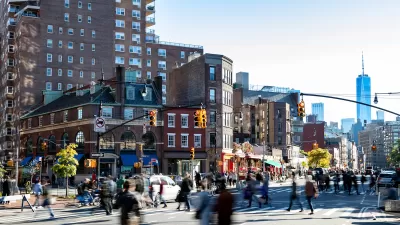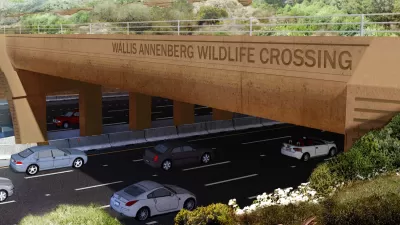Duncan McLaren and Julian Agyeman launch a withering critique of the sharing economy as we know it, and envision "sharing cities" built around technologies that put community before commerce.

According to researcher Duncan McLaren and planning professor Julian Agyeman, "'Sharing' is often too narrowly conceived as being just about economic transactions. The poster children of the 'sharing economy' are being co-opted by the interests of venture capital and its insatiable demands for rapid growth and high-value exit strategies."
Sharing platforms, as they are currently conceived, may not be doing justice to the word. "Uber, rather than enabling ride-sharing to cut congestion, is now little more than a luxury taxi company serving the global footloose elite [...] And Airbnb, the couch-surfing website, turns a blind eye to the growing use of its platform by landlords buying up affordable rental property to convert to short-term lets, which is contributing to gentrification and housing shortages."
The authors cite humanity's natural tendency to share resources, lauding "true" sharing techniques like interest-free loans, co-working spaces, and shared BRT. "Sharing organizations that put community before commerce, and culture before economics, are flourishing in the shadows of the sharing-economy unicorns [...] More generally, city leaders need to support communal models of sharing that build solidarity and spread trust. Sharing systems designed around equity and justice can help shift cultural values and norms toward trust and collaboration."
FULL STORY: How to build smart, sharing cities

Pennsylvania Mall Conversion Bill Passes House
If passed, the bill would promote the adaptive reuse of defunct commercial buildings.

Planning for Accessibility: Proximity is More Important than Mobility
Accessibility-based planning minimizes the distance that people must travel to reach desired services and activities. Measured this way, increased density can provide more total benefits than increased speeds.

World's Largest Wildlife Overpass In the Works in Los Angeles County
Caltrans will soon close half of the 101 Freeway in order to continue construction of the Wallis Annenberg Wildlife Crossing near Agoura Hills in Los Angeles County.

Eviction Looms for Low-Income Tenants as Rent Debt Rises
Nonprofit housing operators across the country face almost $10 billion in rent debt.

Brightline West Breaks Ground
The high-speed rail line will link Las Vegas and the Los Angeles area.

Colorado Bans No-Fault Evictions
In most cases, landlords must provide a just cause for evicting tenants.
City of Costa Mesa
Licking County
Barrett Planning Group LLC
HUD's Office of Policy Development and Research
Mpact Transit + Community
HUD's Office of Policy Development and Research
Tufts University, Department of Urban and Environmental Policy & Planning
City of Universal City TX
ULI Northwest Arkansas
Urban Design for Planners 1: Software Tools
This six-course series explores essential urban design concepts using open source software and equips planners with the tools they need to participate fully in the urban design process.
Planning for Universal Design
Learn the tools for implementing Universal Design in planning regulations.
























